Low self-esteem behaviors are one of the biggest issues that affect a relationship. A person’s sense of self-worth is responsible for how they treat others as well as how they let others treat them. It affects what you can or cannot accept in a relationship, what you think you deserve, and if you’re willing to settle with what you get.
A relationship requires work and a major part of it is about working toward becoming the best version of yourself. Low self-esteem behaviors in a relationship usually crop up due to an individual’s lack of sense of self. If you’ve been dealing with low self-esteem and intimacy issues for most of your life, it can be difficult to even notice such behavior patterns in your relationship.
We spoke to psychotherapist Dr. Aman Bhonsle (Ph.D., PGDTA), who specializes in relationship counseling and Rational Emotive Behavior Therapy, about the signs of low self-esteem behaviors and their impact on a relationship.
Does Low Self-Esteem Affect Relationships?
Table of Contents
Before you figure out how to deal with low self-esteem in a relationship, it is important to understand what self-esteem means and how it affects the bond between partners. Self-esteem is essentially a person’s sense of self and value. It refers to your opinion about yourself, your individuality, identity, sense of belonging, and self-confidence. Your self-esteem plays an important role in how you see yourself, deal with complex situations, treat others, and allow others to treat you. It dictates how much you value yourself – thoughts, opinions, goals, and feelings.
When it comes to relationships, self-esteem impacts the way you think about love – whether you feel worthy or deserving of it. It impacts your ability to build a healthy relationship with your partner. Does low self-esteem sabotage relationships, you may wonder. The answer is yes. Low self-esteem affects relationships. Here are a few ways it could spell doom for you and your relationship with your partner:
- It makes you feel like you aren’t good enough for your partner. You feel like you don’t deserve their love
- You feel jealous and insecure, change yourself to your partner’s liking
- You feel like a burden on your partner
- You ignore your needs and have trouble asking for help. You avoid expressing yourself for fear of abandonment, ridicule, or embarrassment
- You seek validation from your partner
- You compromise on your goals and dreams to make your partner happy
- You feel like your partner is with you out of pity
- You blame yourself for their mistakes and tolerate abuse
- You hesitate to get intimate with your partner
According to Dr. Bhonsle, “The person battling low self-esteem gets bullied, ignored, and shoved into a corner more than once. You feel like you were taken advantage of and that you were giving more than you were getting. It begins to feel like a lopsided exchange. It becomes a one-sided dynamic and a painful one. Then, the relationship either ends or feels similar to flogging a dead horse. You might be together to keep up appearances but there is no love, respect, friendship, growth, or excitement in the relationship.”
Related Reading: What To Expect When You Love A Man With Low Self-Esteem
Such low self-esteem behaviors can have a negative effect on your partner as well. There’s only so much your partner can do to make you feel special and loved. Or to make you feel worthy and assure you that they love you for who you are and that you don’t have to change yourself or feel insecure about the relationship. If they have to constantly deal with your “Do you love me or are you with me out of pity?” question, they will get annoyed at some point.
If you are constantly being clingy in the relationship, jumping to irrational conclusions, asking for validation, or seeking assurance of their love, your partner might feel irritated or humiliated. It’s not a nice feeling to always have to prove your love to your partner, which is why you must recognize the signs of low self-esteem behaviors so that you can deal with them and build a stronger relationship with your partner.
11 Signs Of Low Self-Esteem Behaviors In A Relationship
What behaviors are associated with low self-esteem? How do I recognize or deal with low self-esteem in a relationship? These questions may crop up if you can relate to behavior patterns stemming from low self-esteem. There are several signs to help you understand whether you’re engaging in low self-esteem behaviors. These usually stem from traumatic or abusive childhood experiences.
Dr. Bhonsle explains, “Low self-esteem behaviors don’t just suddenly crop up in a relationship. The pattern existed before the person got into a relationship – during school or college, at your first job. People who think that they aren’t good enough didn’t start believing it overnight. This mindset has cascaded and compounded over a long period. Their past may reveal why they feel like they’re not measuring up and need to be reprimanded.”
If you were neglected, mocked, criticized, made to feel inferior, or always reminded that you are not good or capable enough, there’s a high possibility that you grew up battling low self-esteem. You probably grew up always doubting yourself and questioning whether you deserve love, affection, or any other luxury, care, or concern that people might feel toward you.
In such a situation, a person tends to engage in low self-esteem behaviors without even realizing that they are doing so because this is all they know. This is their normal. They weren’t able to grow emotionally, be assertive, develop conflict resolution and communication skills, draw healthy boundaries, and learn to stand up for themselves because they were brought up in a toxic environment. Here are a few signs to help you understand what behaviors are associated with low self-esteem:
1. Lack of healthy boundaries
One of the major signs and reasons why low self-esteem sabotages relationships is the lack of boundaries between partners. Boundaries are often established during childhood. Children who develop a secure attachment style with their caregivers can create healthy boundaries in their relationships as an adult because they are content, confident people who see themselves in a positive light.
But people who deal with low self-esteem in a relationship have difficulty establishing boundaries with their partners because they fear criticism and abandonment from their beloved. They are afraid that their partner will stop loving them or, worse, leave them if they try to set boundaries in the relationship. This fear makes them accept their partner’s unhealthy or toxic ways of treatment.
“There is a master and slave dynamic in some relationships where one person is calling the shots while the other just toes the line,” explains Dr. Bhonsle. They may hate the way their partner treats them but will silently tolerate it because they don’t want to lose them. The person battling self-esteem might have dysfunctional boundaries due to which they do not know how to give space to their partner or accept that they are different people. This leads to a lack of respect for the individual as well as their personal space.
2. Signs of low self-esteem behaviors – People-pleasing
People-pleasing is one of the answers to what behaviors are associated with low self-esteem. People suffering from low self-esteem have this extreme urge to please their partner and those close to them. They need to make sure that everyone is happy even if it means neglecting their own needs and feelings. This happens because they seek validation from their partner. They don’t feel like they are good enough or capable or worthy of love, which is why they need their partner to prove their worth, validate their efforts and make them feel good about themselves.
Dr. Bhonsle says, “There is a tendency to engage in people-pleasing behavior if you suffer from low self-esteem issues. This might also lead them to constantly apologize in the face of conflict or when things become nasty because they want to keep everyone happy.”

Those who engage in people-pleasing go overboard with their gestures. They are extra kind and helpful and tend to avoid conflict or any other negative feedback or emotion because they feel this constant need to prove that they are worthy of love and appreciation. They can go to any extent to make their partner happy and win their approval, even if it means doing more than their fair share of the work, changing themselves or manufacturing stories, and lying in the relationship.
3. You find it difficult to accept praise or positive feedback
Another sign of low self-esteem behaviors is difficulty in accepting praise, compliments, appreciation, or any kind of positive feedback from their partner or others. This could again stem from their childhood where they were never appreciated for their efforts or achievements. They were probably made the butt of jokes or grew up feeling incapable or good-for-nothing, which is why being appreciated or lauded feels alien to them.
People with low self-esteem don’t know how to take a compliment. Appreciation or positive feedback is met with suspicion. Such people don’t think highly of themselves, which is why receiving praise does not align with their opinion about themselves. They reject compliments or any kind of flattery because they just don’t believe in them. They feel the person is heaping praise out of pity or to mock them.
Related Reading: How To Love Yourself – 21 Self Love Tips
4. You talk negatively about yourself
This is one of the most prominent ways how low self-esteem affects relationships. Those who exhibit low self-esteem behaviors tend to talk negatively about themselves. They show themselves in a cynical and dismissive light because they focus on their flaws and imperfections instead of their strengths. They blame themselves for everything that goes wrong. They tend to find faults in themselves (appearance, abilities, habits, or personality) instead of indulging in positive self-talk.
No one likes to always hear their partner insult themselves and complain or crib about how unworthy or flawed or terrible they are despite trying to make them believe otherwise. If you always indulge in self-sabotage or blaming and beating yourself up, it’s bound to rub off on your partner at some point and this is one of the ways how low self-esteem sabotages relationships. Low self-esteem behaviors make people believe they don’t have a bright future ahead. It makes them feel hopeless, thereby affecting their relationship as well.
5. You’re always doubting and second-guessing yourself
One of the most common low self-esteem behaviors is indecisiveness because you’re always doubting yourself and worrying whether it’s the right call to make. You are scared of failure and making the right choices, which is why you often ask others what they think about your decisions instead of sticking to your instincts. You constantly worry about what your partner will think about your choices.
If you deal with low self-esteem in a relationship, you tend to second-guess yourself a lot, making it harder for you to make major decisions about your life because you let fear drive that process. Don’t get us wrong. Dr. Bhonsle says, “It is normal to second-guess yourself. People do it all the time but if it becomes a pattern where you find yourself constantly seeking the opinion or validation that you’ve made the right choice from others, there’s a high chance it’s due to low self-esteem.”
6. You feel unworthy or tend to cling to your partner
Another common sign of low self-esteem and intimacy issues in a relationship is that you feel unworthy and undeserving of the love and affection your partner gives you. You worry that you’re not good enough for your partner and that they’re with you only out of sympathy or just pure luck. This happens because you don’t value yourself enough and seek external things (relationships, career, etc.) to make you feel worthy and special.
There’s another side to this as well. One of the ways low self-esteem sabotages relationships is that the partner battling it tends to become needy and clingy because they’re scared to lose their love. They let themselves be defined by their relationship and constantly seek attention. They are willing to go to any extent for it – lying and creating drama for sympathy, pretending to feel hurt, demanding to be given priority over their partner’s friends and family all the time, or making them feel bad about not spending all their time with you.
7. Enabling low self-esteem and toxic behavior patterns
Dr. Bhonsle says, “Low self-esteem behaviors can also stem from the way your partner treats you. If your partner is constantly trying to punish, berate, gaslight, or humiliate you, your self-esteem tends to take a hit. If they’re always making you question your judgment, life choices, professional decisions, as well as your relationships with family and friends, it will affect your self-confidence. If your partner makes you feel like you don’t have your life figured out and only they can help you figure out the secret to live a good life, you might collapse under that pressure.”
Low self-esteem sabotages relationships and one reason for that is you tend to do things to please your partner that aren’t always healthy. Without realizing (or you do realize but are too scared to lose the ‘love’ of your beloved), you enable toxic behavior patterns that could have damaging effects on you and your relationship. You encourage them to ill-treat you by giving in to their demands because doing things for them makes you feel worthy.
Enabling behaviors include asking for permission for everything that you wish to do, letting them take you for granted, supporting them with their ambition even if you know that they aren’t working toward their goals, giving them money for drugs and alcohol, or any other kind of substance abuse, always doing things for them and solving their problems, letting them make toxic choices involving you, putting in all the work in the relationship while they do nothing, or letting them control and abuse you.
8. Devoting all your energy to your partner’s goals
One of the most common signs of low self-esteem behaviors in a relationship is when you decide to give it all up for your partner. It’s worse because it stems from the fear of losing them if you don’t sacrifice it all. You don’t stand up for yourself and your ambition because you are scared your partner will not appreciate it and might get upset and that’s the last thing you want to be responsible for. You give your partner’s goals more importance than your own.
Dr. Bhonsle elaborates, “People with low self-esteem issues tend to do more than their fair share of the work because they are scared to lose their partner. They try to help their partner achieve success but ignore their own desires and ambitions in an attempt to make them happy. It comes under the people-pleasing gamut of behavior.”
It’s not wrong to take a step back to support your partner but, if you make that decision out of fear instead of personal choice, then there’s a problem. You should give as much importance to your goals as you give to your partner’s because your dreams and ambitions matter equally. You should continue to do things you love, follow your passion, focus on your career, and develop skills and interests. If you aren’t doing so because you don’t want to upset your partner, it’s likely because you’re battling low self-esteem issues.
Related Reading: Dealing With An Insecure Boyfriend? Here Are 16 Coping Tips
9. You obsess over your appearance
This is again one of the most common signs of low self-esteem behaviors. Those suffering from low self-esteem and intimacy issues might be extremely conscious of how they look. They battle body image problems, which not only affect their emotional equation with their partner but also sexual intimacy. They have a poor self-image, which is why they’re constantly judging themselves for not being ‘beautiful’, ‘attractive’, or ‘sexy’ enough.
If you’re standing in front of the mirror and calling yourself “fat”, “ugly” or “unattractive” or if you’re conscious of your body during sex or any other form of intimacy, you may have low self-esteem and confidence issues. You’re worried that your partner won’t love or accept you if you aren’t attractive. You attach your value and worth to your physical beauty and appearance and encourage your partner also to judge and love you by the same standards.

10. You always engage in negative comparisons, allow yourself to be insulted
If you’re still asking yourself what behaviors are associated with low self-esteem, know that this is one. Constantly comparing yourself to others, whether in person or on social media, is a sign of low self-esteem behaviors. Comparison can be good but an unhealthy amount of it can damage your relationship forever. This is also how low self-esteem affects relationships.
If you’re always comparing yourself to those you think are better than you, then it probably stems from a lack of sense of self. If that comparison leaves you feeling incapable, unworthy, incompetent, or hopeless, know that it has its origins in your poor sense of self-worth and belief in yourself. If the comparisons don’t inspire you to do better, rather they break your confidence, make you feel terrible, force you to withdraw, and negatively affect your mental health, then it’s a sign of low self-esteem.
Dr. Bhonsle says, “A major sign of low self-esteem behavior is that you allow yourself to be insulted in public, even if it’s in jest. You are made the butt of all jokes in groups of friends or within the family and you allow it to happen. Those who suffer from low self-esteem are unable to establish what is acceptable and what is not, in terms of public behavior. They allow others to walk all over them.”
11. Trouble expressing yourself
Dr. Bhonsle explains, “One of the key signs of low self-esteem behaviors is the inability to express yourself in the relationship. You’re constantly second-guessing yourself because you may be wondering if your feelings are even worth being articulated.” Those who deal with low self-esteem in a relationship tend to avoid being vocal about their needs and opinions due to abandonment issues, ridicule, embarrassment, or judgment.
You develop a habit of staying silent or hiding your feelings due to a lack of confidence and self-belief. Your low self-esteem makes you think you don’t deserve help or support. It could be because you feel embarrassed to ask for help. Another reason could be that you see asking for assistance as a sign of weakness and incompetency. You have difficulty being firm and assertive.
Key Pointers
- Someone with low self-esteem issues usually doubts and second-guesses themselves
- One of the signs of low self-esteem is that you always feel unworthy and undeserving of love due to which you have trouble accepting positive feedback
- If you have trouble expressing yourself or being vocal about your needs, it’s likely that you are suffering from low self-esteem
- People with low self-esteem are likely to obsess over their appearance, enable toxic behavior patterns, and completely sideline their dreams to support their partner’s
It’s true low self-esteem sabotages relationships. But there are several things you can do to improve your sense of self and self-worth in a relationship. One of them is therapy. Dr. Bhonsle says, “We need to figure out what exactly is the source of your low self-esteem behaviors. A therapist can help a person realize that their low self-esteem is something that they are doing to themselves. It’s not something that is happening to them. This realization needs to hit home so that they can figure out a way to create a life where they can build value for themselves.” If you’re looking for help, Bonobology’s panel of licensed and experienced therapists is only a click away.
FAQs
There are ways you can fix low self-esteem in a relationship. Don’t bottle up your feelings, remember that you’re worthy of love and respect, understand your partner’s perspective on the matter, be yourself, dress how you feel, express your needs and desires, and last but not the least, make yourself a priority. Your goals are as important as your partner’s. Seek therapy if needed.
Low self-esteem gives rise to jealousy and insecurity in a relationship. It makes one sensitive to negative feedback or criticism from their partner. You feel the need to please your partner and prove that you’re worthy of their love because you think that they are with you only for the sake of it. You do everything your partner says because you are scared you might lose them if you don’t.
How To Get Out Of A Controlling Relationship – 8 Ways To Break Free
11 Examples Of Self-Sabotaging Behaviors That Ruin Relationships
30 Self-Care And Wellbeing Gift Ideas – Because You Deserve The Best
Your contribution does not constitute a charitable donation. It will allow Bonobology to continue bringing you new and up-to-date information in our pursuit of helping anyone in the world to learn how to do anything.



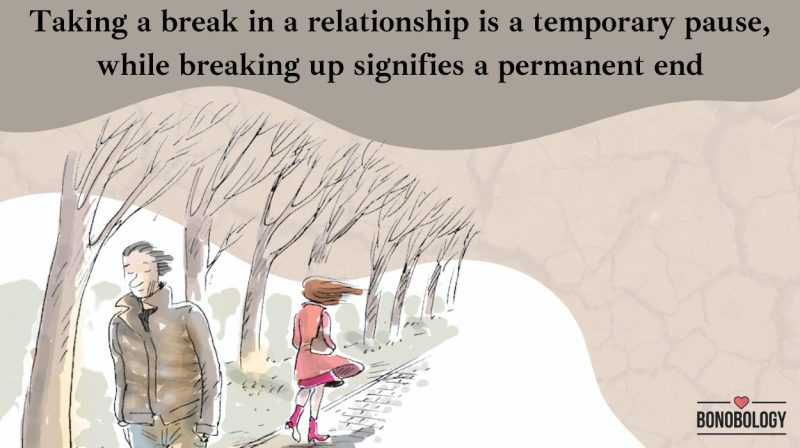


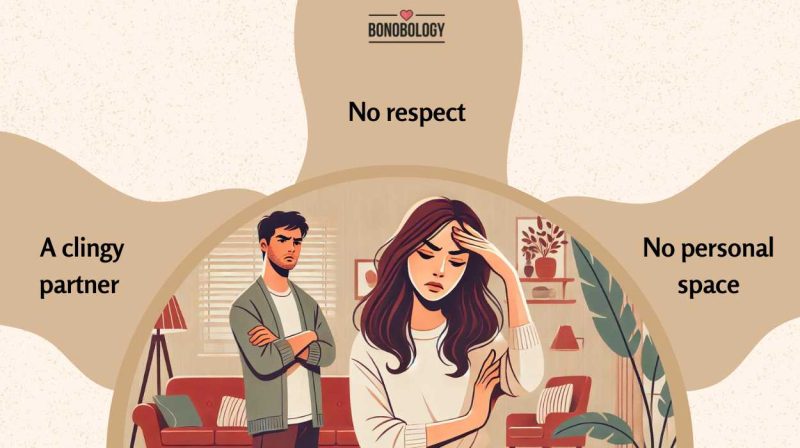
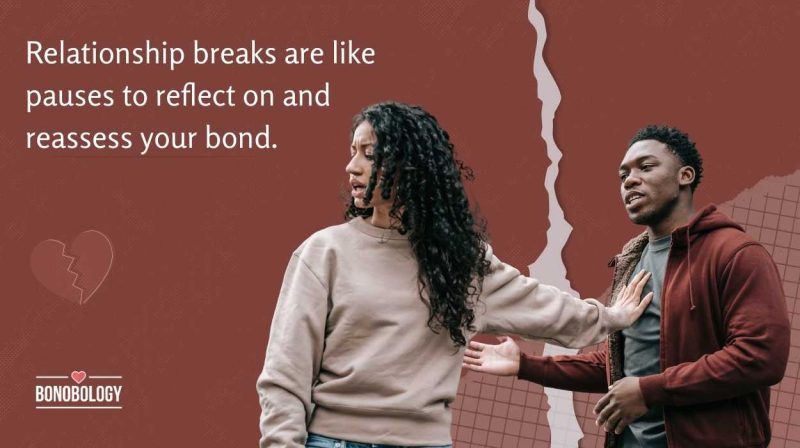
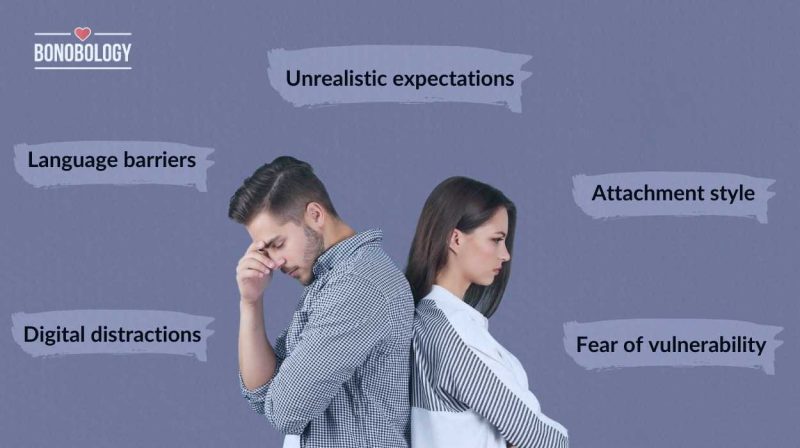

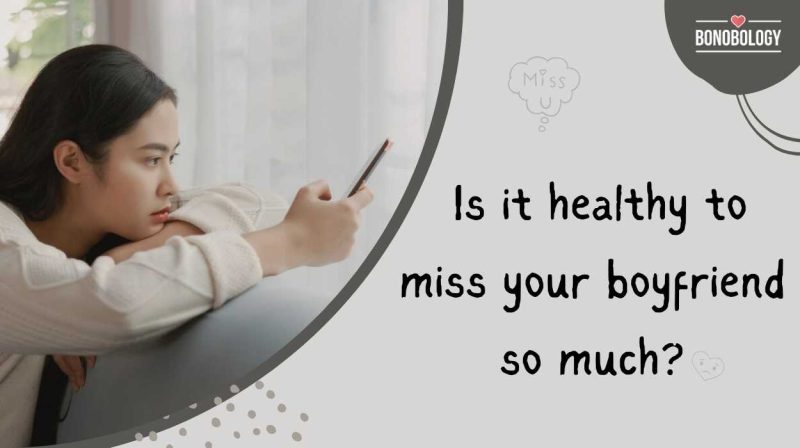
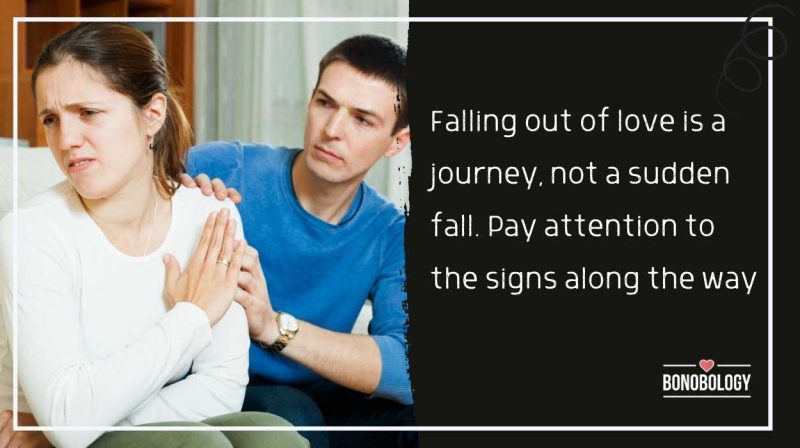
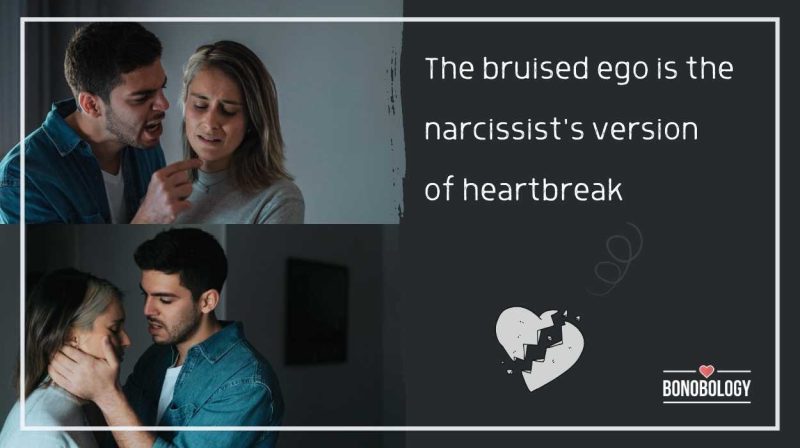
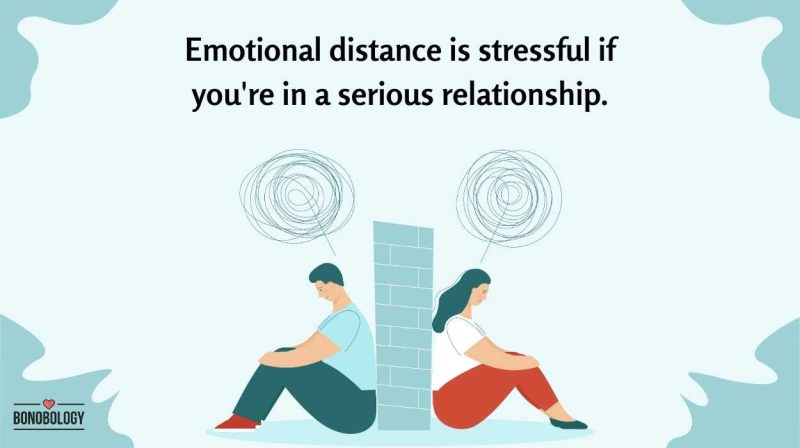
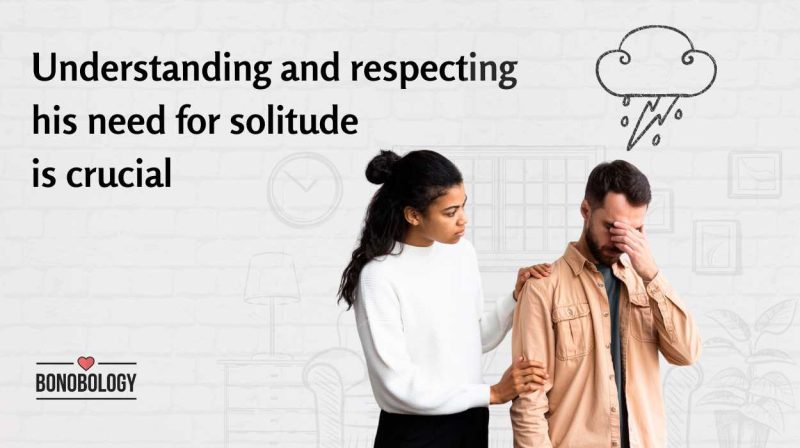
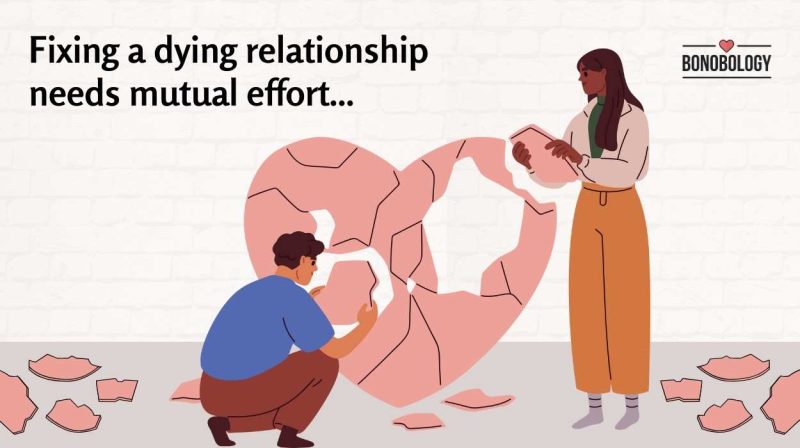
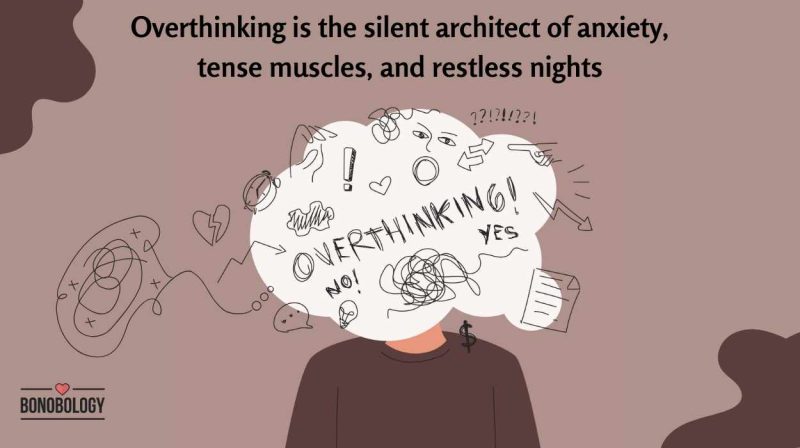
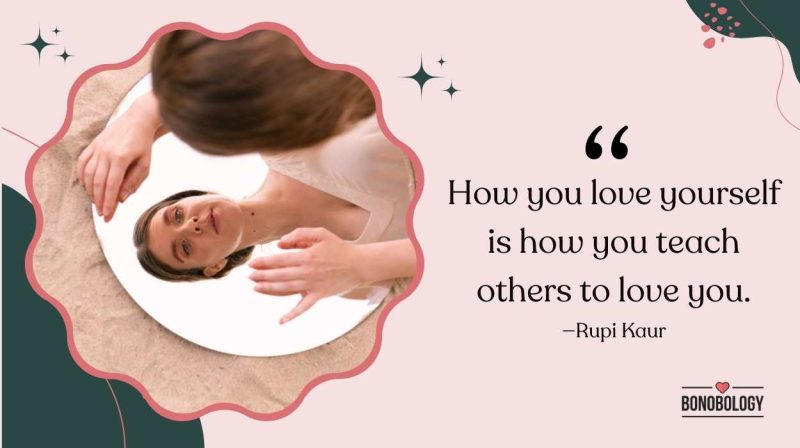
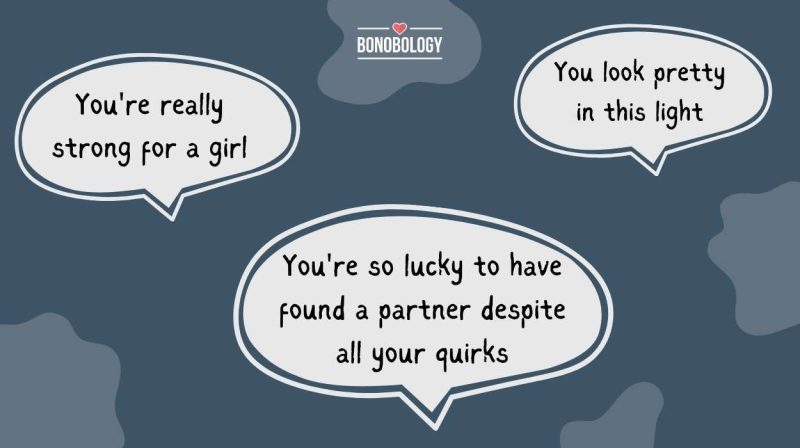
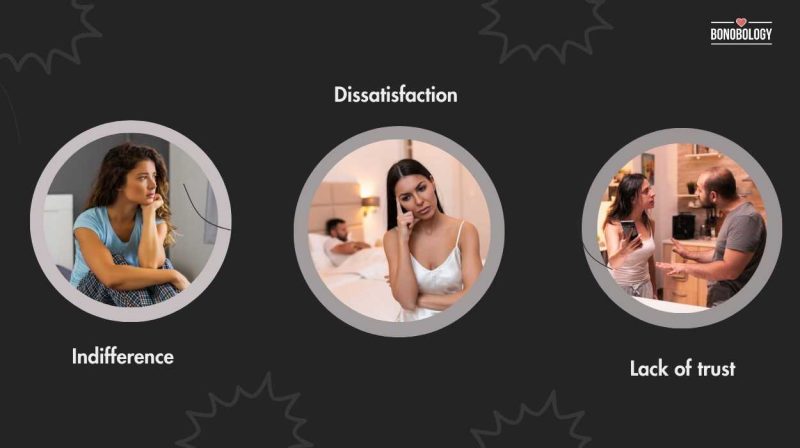
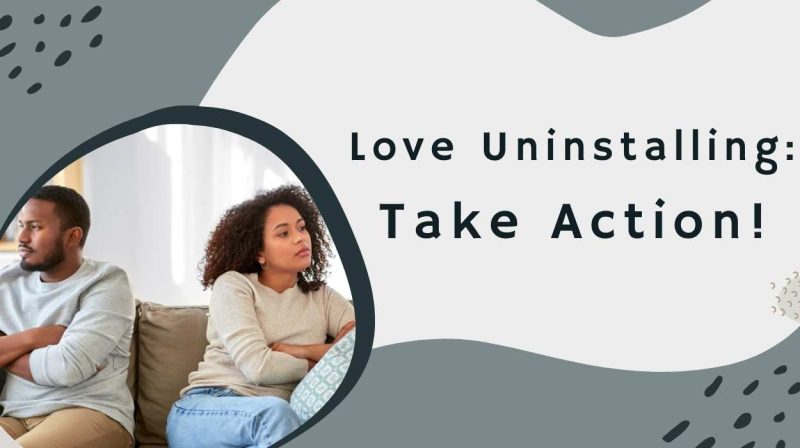

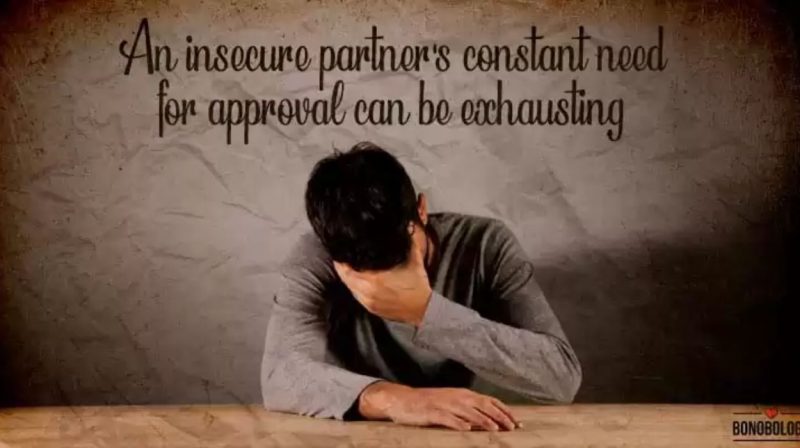
Featured
What Is A Break In A Relationship And How To Navigate It
Emotional Abandonment In Marriage: Signs, Causes, And Ways To Cope
15 Signs That Your Girlfriend Isn’t Sexually Attracted To You
Feeling Suffocated In A Relationship: Reasons, Signs, Ways To Deal
How Long Should A Relationship Break Be? A Therapist Answers
Why Do I Struggle To Communicate With My Partner? An Expert Answers
Will He Come Back After Silent Treatment? 15 Ways To Make Sure He Does
Why Do I Miss My Boyfriend So Much: Reasons And Ways To Deal
21 Clear Signs She Doesn’t Want A Relationship With You
How Narcissists Treat Their Exes — 11 Common Things They Do And How You Can Respond
Emotional Distance: Meaning, Causes, Signs, And Ways To Fix
My Boyfriend Is Grieving And Pushing Me Away: Tips To Cope And Comfort Your Man
What To Do When Your Relationship Is At Breaking Point?
Am I Overthinking Or Is He Losing Interest? 18 Signs To Help You Identify
Discover Your Worth: 13 Ways To Feel Loved And Appreciated
23 Backhanded Compliment Examples in Everyday Life That Are Actually Insults
11 Things That Happen When A Woman Shuts Down Emotionally – And How To Reconnect
15 Signs Of Emotional Detachment In Your Relationship
How To Not Be Jealous In A Relationship – 15 Expert Tips
11 Ways An Insecure Partner Drains A Relationship And 5 Ways To Fix It